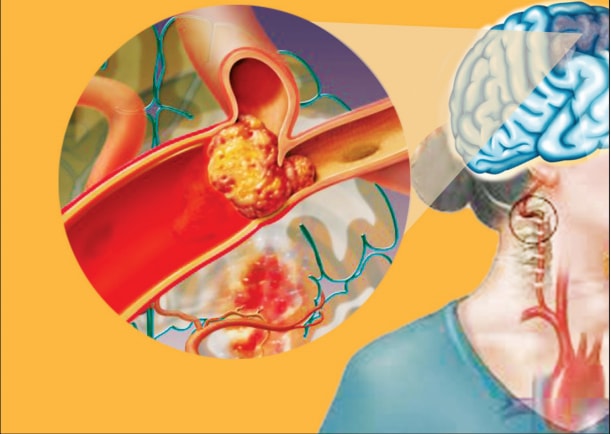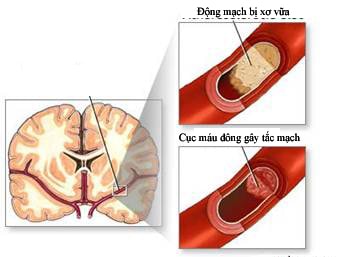Prevent stroke in cold weather
Cerebral vascular accident or stroke is becoming an important medical problem because the average life expectancy is increasing and the risk of stroke depends on age. In particular, the disease increases in cold weather. Every year, in our country, cerebral vascular accident affects hundreds of thousands of people and leaves serious sequelae.
What is a stroke?
A stroke occurs when a blood vessel supplying oxygen and nutrients to a part of the brain tissue is blocked or ruptured. When this happens, the nerve cells in the upper part of the brain become paralyzed and no longer function. As a result, the part of the body controlled by them no longer functions as before. There are many different causes of a stroke, but the most common is a blood vessel being blocked by a blood clot called a thrombus, which forms in the lumen of the artery. Or the arteries become atherosclerotic due to fat buildup and thickening in the blood vessels. This gradually narrows the lumen of the blood vessel, slowing the flow, and at some point forms a blood clot. The blood clot wanders and is carried away by the flow and becomes blocked in a vessel in the brain, which is called a cerebral embolism. If an artery in the brain ruptures and causes bleeding, it is called a cerebral hemorrhage. Intracerebral hemorrhage can occur in patients with atherosclerosis and hypertension or after head trauma or a ruptured congenital aneurysm.
 |
| Blood clots are a cause of stroke. |
Early recognition of signs of stroke
Paralysis of limbs: the patient feels one side of the face or limbs paralyzed, aching, body weakness, drooling, dizziness... a few hours or days before. These symptoms are most obvious after waking up. This is a reaction due to the carotid artery system not providing enough blood, the brain is anemic, lacking oxygen.
Suddenly the face goes dark, can't see anything: this phenomenon usually lasts for a few seconds or minutes and then normal vision returns. This shows that the retina is temporarily ischemic, the blood circulation capacity of the brain is severely narrowed.
The patient has a stuttering phenomenon: Unable to speak or has difficulty speaking or cannot understand what others say, sometimes has confused thinking, cannot answer questions, cannot answer calls... This is also due to lack of blood supply to the brain, affecting the language center of the cerebral cortex.
The patient has symptoms of dizziness, nausea, sometimes feels dizzy and suddenly falls unconscious. The cause is due to the arteries not supplying enough blood to the brain, affecting the cerebellum and related nerve tissues.
Headache and dizziness: If the patient has a history of high blood pressure, when there is a cerebral hemorrhage, blood pressure fluctuations will increase, causing headaches, dizziness, even accompanied by nausea, vomiting, and feeling uncomfortable... It is very possible that a cerebral hemorrhage has occurred.
Yawning a lot: In the elderly, due to cerebral arteriosclerosis, blood vessels are narrowed, causing blood circulation to slow down, causing anemia and lack of oxygen to brain tissue. Brain function is affected, causing yawning. If in a few days, the elderly yawn a lot continuously, it shows that the brain is anemic and a stroke may occur, so be careful.
 |
| Atherosclerosis or blockage of the arteries that feed the brain is the cause of stroke. |
How to prevent?
Stroke occurs very suddenly, the patient does not feel any pain. Therefore, the patient sometimes cannot call for help, so it is easy to lose the precious time when we can save the brain (also known as the golden hour) in the first 3 hours of illness. When a stroke is detected late, even with active treatment, it is easy to leave serious sequelae. Therefore, detecting and actively treating the causes of stroke is important such as: treating high blood pressure, atherosclerosis, avoiding nervous tension, working and resting properly, exercising regularly according to your strength, not drinking too much alcohol... When there are symptoms of headache, dizziness, discomfort, fatigue of unknown cause..., you need to go to a medical facility immediately for examination, early detection and timely treatment.
According to suckhoevadoisong






